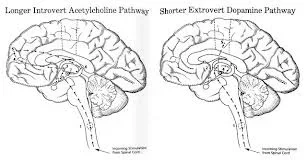La Sagna
I did it! I'm a butterfly!
- MBTI
- INFJ
- Enneagram
- 9
I have been reading about most Feelers being women and the idea that male Feelers seem to be seen as having more feminine traits. This left me really wondering because all the males in my family are Feelers and I believe that many of the males in my extended family are also Feelers. This has meant that I have not really identified the F characteristics as being necessarily feminine.
I think that this has something to do with my background. I am French from Québec but I have been living in English Canada for a long time and I strongly believe that there is a much higher percentage of male Feelers in French Canada than there is in English Canada. I'm not sure there is much of a difference in the percentage of women Feelers or at least it is not as noticeable.
I've never been much interested in dividing people between race or cultural lines but I thought this observation was very interesting. For me, there is a distinct different 'feel' when I am in Québec than when I am in English Canada, and I think this might be partly why. I am quite certain that there are more Feelers than average in Québec.
My dad is an ESFJ and my mom was an ESFP and I have a feeling that there are probably a lot of both of those types in Québec.
I think that this has something to do with my background. I am French from Québec but I have been living in English Canada for a long time and I strongly believe that there is a much higher percentage of male Feelers in French Canada than there is in English Canada. I'm not sure there is much of a difference in the percentage of women Feelers or at least it is not as noticeable.
I've never been much interested in dividing people between race or cultural lines but I thought this observation was very interesting. For me, there is a distinct different 'feel' when I am in Québec than when I am in English Canada, and I think this might be partly why. I am quite certain that there are more Feelers than average in Québec.
My dad is an ESFJ and my mom was an ESFP and I have a feeling that there are probably a lot of both of those types in Québec.


